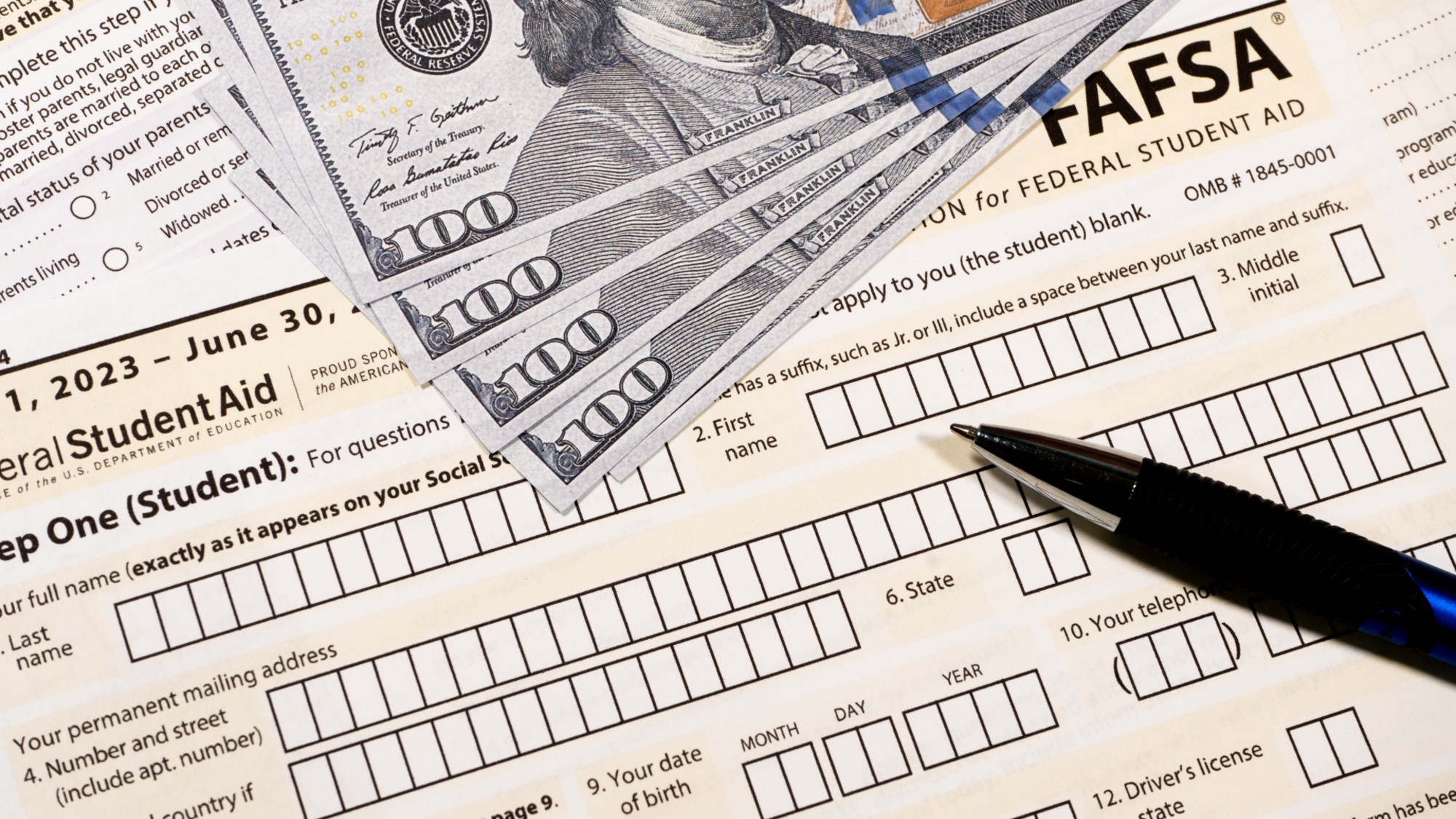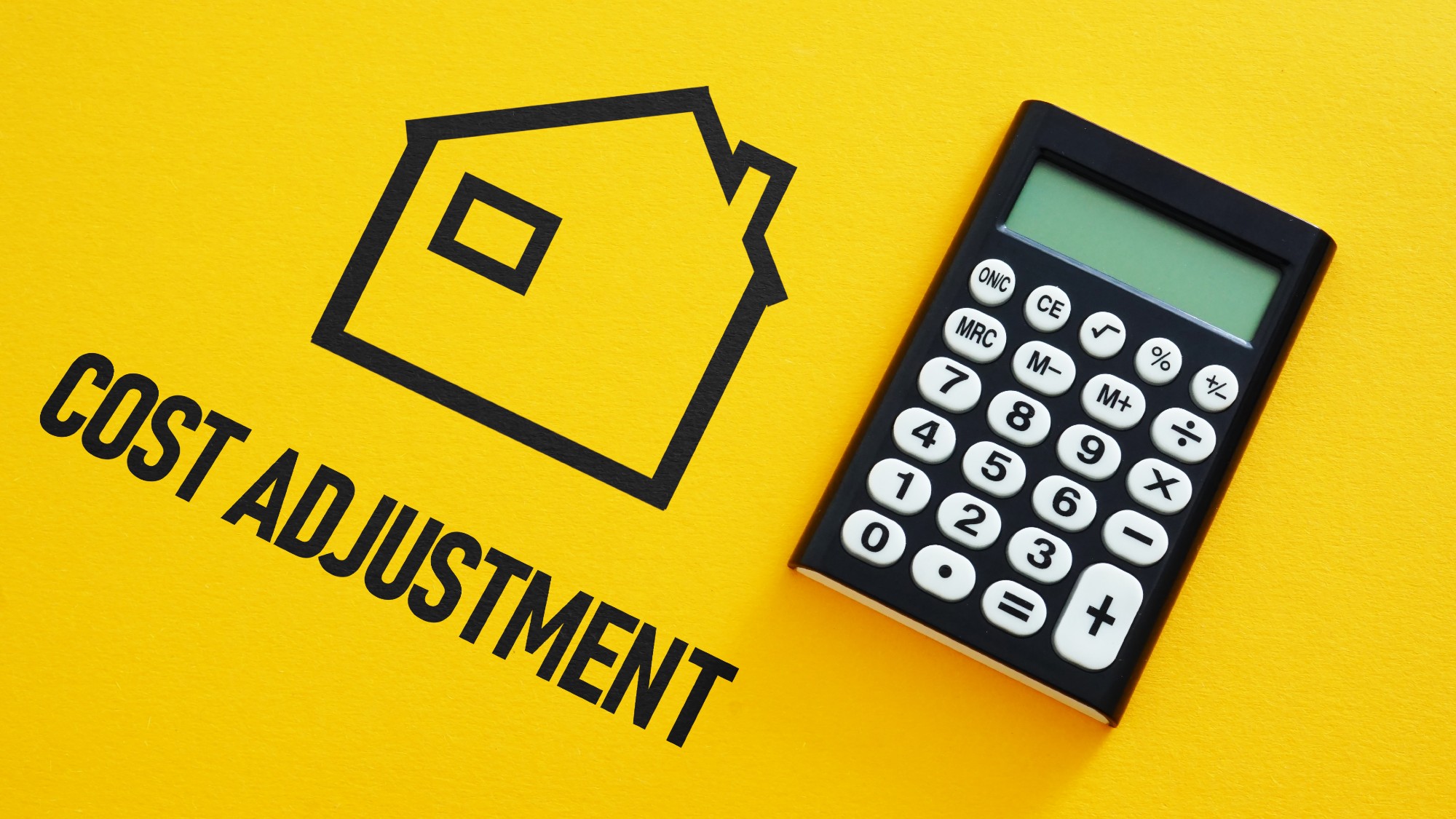The household bills that are set to rise in 2024
From energy bills to the TV licence, several household payments are set to change

A free daily email with the biggest news stories of the day – and the best features from TheWeek.com
You are now subscribed
Your newsletter sign-up was successful
The new year may be a chance for new beginnings and extra opportunities but unfortunately it also means bill increases.
Household bills typically rise each year, said Which? and "sadly 2024 is no exception".
There are plenty of "big financial changes" over the next few months, explained Lovemoney , that could "dent your wallet or boost your income".
The Week
Escape your echo chamber. Get the facts behind the news, plus analysis from multiple perspectives.

Sign up for The Week's Free Newsletters
From our morning news briefing to a weekly Good News Newsletter, get the best of The Week delivered directly to your inbox.
From our morning news briefing to a weekly Good News Newsletter, get the best of The Week delivered directly to your inbox.
Here are the main changes to watch out for in the first few months of the year.
January: energy bills
The energy price cap has increased this month, limiting how much suppliers can charge out-of-contract customers.
It has increased by 5% to £1,928 until the end of March, said The Guardian, "at the start of what could be the coldest three months of the year".
The next price cap is set for April when it is expected to drop to £1,660, according to analyst Cornwall Insight , as wholesale prices have experienced a "significant decline" since the end of last year.
A free daily email with the biggest news stories of the day – and the best features from TheWeek.com
March: the cost of commuting
The Department for Transport has confirmed that train fares will rise by 4.9% from 3 March.
It will affect season tickets on most commuter journeys and off-peak returns on long-distance trips but "is not as much as it could've been", said the Daily Mirror, as July's Retail Price Index measure of inflation that is traditionally used to determine annual fare rises was 9%, but the government opted to limit the increase.
April: council tax, utilities and your viewing habits
Council tax is "one of the biggest monthly outgoings" for households, said Which?.
While it is frozen at current levels in Scotland until 2025, "no such announcement" has been made for England and Wales so local authorities can raise bills by up to 5% without public consultation.
The exact payment will be announced in February and will depend on your council tax band and whether you qualify for any exemption such as if you live alone. You can check your council tax band on the Gov.uk website.
The TV licence fee is also set to rise in April.
Everyone in the UK who watches live TV, or anything on BBC iPlayer, has to pay the licence fee.
It was frozen for the past two years, "but that is set to change" said The Sun, and it will rise by £10.50 to £169.50 from 1 April.
There are certain exemptions available, such as for people on Pension Credit, students living away from home, and the visually impaired.
Mobile and broadband providers can raise prices in line with inflation "and an extra 3.9% on top", said the newspaper, despite regulator Ofcom's proposals to ban this practice.
The rises usually take place in April and some providers "are likely to raise their prices by more than 8%", said Which?. Customers could end up paying £120 "more than you thought" over the duration of a contract, added the consumer watchdog, so it is worth shopping around to see if you can save money by switching.
Water bills also typically rise in April but could go up "by less than planned", said MoneyWeek, as 12 water companies have been hit with penalties for missing targets on pollution, leaks and customer service, "which will come off customers' bills".
Benefits and wages boosts
Bills may be rising but so are some benefits.
Pensioners will get "another big increase" in state pension payments, said Lovemoney, as the triple lock raises the weekly payments from £203.85 to £221.20.
The National Living Wage will also increase in April from £10.42 per hour to £11.44 and National Insurance rates are due to drop.
However, frozen tax thresholds mean the "tax burden" will still rise to record levels for millions of people, said BBC News.
The amount you can earn before paying tax has been frozen at £12,570 – as have the basic and higher rate tax thresholds – until 2028. They typically rise with inflation but have been held until 2028, added BBC News, meaning that as earnings increase, "more people will have to start paying tax, and more people will have to pay higher rates of tax, increasing their overall tax bill".
Marc Shoffman is an NCTJ-qualified award-winning freelance journalist, specialising in business, property and personal finance. He has a BA in multimedia journalism from Bournemouth University and a master’s in financial journalism from City University, London. His career began at FT Business trade publication Financial Adviser, during the 2008 banking crash. In 2013, he moved to MailOnline’s personal finance section This is Money, where he covered topics ranging from mortgages and pensions to investments and even a bit of Bitcoin. Since going freelance in 2016, his work has appeared in MoneyWeek, The Times, The Mail on Sunday and on the i news site.
-
 History-making moments of Super Bowl halftime shows past
History-making moments of Super Bowl halftime shows pastin depth From Prince to Gloria Estefan, the shows have been filled with memorable events
-
 The Washington Post is reshaping its newsroom by laying off hundreds
The Washington Post is reshaping its newsroom by laying off hundredsIn the Spotlight More than 300 journalists were reportedly let go
-
 Quiet divorces are sneaking up on older couples
Quiet divorces are sneaking up on older couplesThe explainer Checking out; not blowing up
-
 Six ways to boost your finances in 2026
Six ways to boost your finances in 2026The Explainer It’s not too late to make a new year’s resolution to finally get organised money-wise
-
 How your household budget could look in 2026
How your household budget could look in 2026The Explainer The government is trying to balance the nation’s books but energy bills and the cost of food could impact your finances
-
 What are Pell Grants and who do they benefit?
What are Pell Grants and who do they benefit?The Explainer These are grants, not loans — meaning students do not have to repay the funds, but they must first meet certain conditions
-
 What to know about the latest Social Security cost-of-living adjustment
What to know about the latest Social Security cost-of-living adjustmentThe Explainer A slightly more substantial increase for 2026, though not by much
-
 The financial changes to expect in 'Awful April'
The financial changes to expect in 'Awful April'The Explainer As the new financial year begins, it brings changes for bills, wages and tax
-
 How to earn extra cash for Christmas
How to earn extra cash for ChristmasThe Explainer The holiday season can be expensive but there are ways to bolster your festive finances
-
 What is dynamic pricing, and how will its increasing adoption affect your wallet?
What is dynamic pricing, and how will its increasing adoption affect your wallet?Speed Read The practice of adjusting prices based on demand is becoming more common
-
 The importance of discussing and dealing with debt
The importance of discussing and dealing with debtThe Explainer Increasing numbers of people have 'problem debt' – but there are ways to tackle it